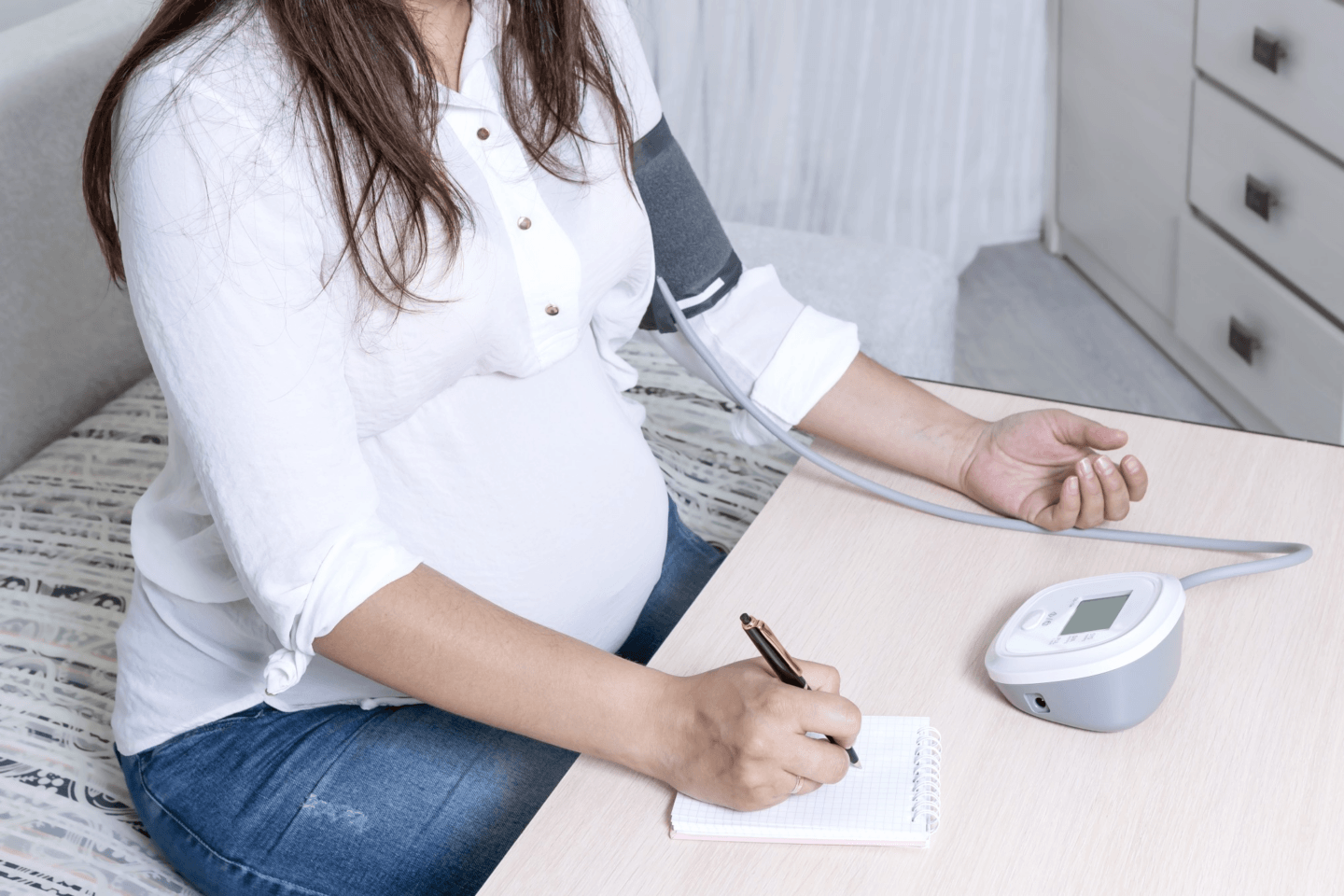No medications needed, just a couple of lifestyle changes.
June 7, 2017
@iripetrakova / Twenty20
You may think of high blood pressure as a problem you’ll have to deal with when you are older, but it turns out, many pregnant women deal with it too. Hypertension affects up to 8 percent of expecting women and can lead to complications—from preeclampsia to low birth weight to higher risk of placenta abruption (placenta separating from the uterus before labor) to kidney problems. So if you were diagnosed with gestational hypertension or are at risk of developing it during pregnancy, you should find a way to keep your blood pressure under control; and since a lot of medications are big no-nos during pregnancy, the key to doing so is making a few lifestyle changes.
1. Ditch the salt. Although your body requires sodium in small amounts, consuming too much sodium can lead to hypertension. So try to substitute salt for other spices, like cumin fresh herbs and lemon pepper. You can also rinse canned food to rid them of any extra sodium, and try your best to avoid processed foods and fast foods. If you buy processed foods, try to choose low-sodium options.
2. Eat a healthy more whole grains and potassium-rich foods. Go bananas on, well, bananas, but not just. Sweet potatoes, prunes, raisins, kidney beans, tomatoes and more are all high on potassium and can thus help you lower your blood pressure. Studies have shown that whole grains, which are rich in dietary fibers, can also help reduce hypertension. So fuel up on legumes, vegetables, protein and whole grains. For example, for breakfast you could have a mixed veggie omelet paired with whole grain toast and a side of fruit.
3. Destress. Whether you are pregnant or not, being stressed can actually cause your blood pressure to hike. So try eliminating the things that trigger anxiety, and do what you can to promote relaxation — whether it’s meditation, yoga or breathing techniques. All these can eventually help you manage labor pain, so it’s good practice for the big day, too.
4. Get moving. Women who are sedentary are more likely to develop high blood pressure. So implementing a consistent physical routine that you can do throughout your pregnancy is very important. Not only will it relieve stress, increase blood circulation and lower blood pressure, but it will have a positive impact on your baby’s health outcome going forward. So try to exercise 30 minutes every day. And if you don’t usually work out, you can do things that are not too intensive, like walking or swimming.
5. No smoking or alcohol. This goes without saying, but avoiding smoking and alcohol during your pregnancy is essential for the safety and health of your baby. What’s more, both alcohol and cigarette smoking can bring your blood pressure up. So if you are still smoking during pregnancy, talk to your doctor to implement a plan to quit.
6. Keep a close eye on your weight. You’ve heard the saying “eating for two” before, but you shouldn’t take it literally. Being overweight is a risk factor for hypertension, so you want to make sure that your pregnancy weight gain stays within healthy limits. So focus on a healthy regimen and, of course, listen to your body.
7. Follow medication protocol. If you’ve been advised to take any medications, it’s important to adhere to the schedule and take it as noted. Also, hypertension can be a side effect of some medication. So make sure to talk to your doctor to find out what is safe to take during pregnancy.
Health
"*" indicates required fields
